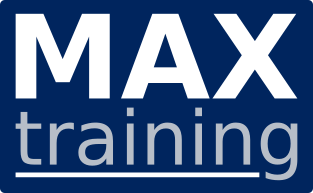ForgeRock Directory Services Core Concepts
Code: DS-400The ForgeRock® Directory Services Core Concepts course is for students who want to learn how to implement ForgeRock® Directory Services (DS) in a ForgeRock Identity Platform™ (Platform) deployment and as a standalone service. Current platform best practices are used to deploy and maintain DS. Using lab exercises in this course, students gain hands-on experience with the important features and capabilities of DS, which they can use to deploy DS on the job.
Note that Revision A.2 of this course is built on version 6.5.1 of DS.
Target Audiences
The following are the target audiences for this course:
- System Integrators
- System Consultants
- System Architects
- System Administrators
- Web Developers
Objectives
Upon completion of this course, you should be able to:
- Understand how DS is used in a Platform deployment
- Install DS as a standalone service or as an external data store for the Platform
- Use setup profiles to configure DS during installation
- Manage backend data stores
- Monitor and tune DS for different deployment types using HTTP and LDAP
- Implement access control and privileges
- Configure delegated administration
- Back up and restore backends
- Import and export data
- Manage custom attributes
- Manage log publishers
- Replace self-signed replication certificates
- Plan for a migration from Oracle Directory Server Enterprise Edition to DS
- Manage entries using the CLI and REST
- Implement high availability using replication
- Monitor health status
- Monitor and troubleshoot replication
- Manage DS in a ForgeRock® Identity Management (IDM) deployment
- Manage DS in a ForgeRock® Access Management (AM) deployment
- Deploy a distributed topology
- Configure data confidentiality
- Install and configure directory proxy servers
- Configure Prometheus and Grafana to monitor DS instances
Prerequisites
The following are the prerequisites to successfully completing this course:
- Basic knowledge and skills using the Linux operating system to complete labs
- Basic knowledge of LDAP, JSON, REST, Java
Duration
5 days
Certification
Earn a Digital Badge from attending this course. Learn more about ForgeRock badges at www.youracclaim.com/organizations/forgerock/badges
Course Contents
Chapter 1: Introducing ForgeRock Directory Services (DS)
Lesson 1: Understand how DS is used in the ForgeRock Identity Platform
- Describe how the Platform uses DS
- Describe deployment options
Lesson 2: Installing DS
- Describe request processing
- Understand where data is stored
- Understand the installation process
Lesson 3: Managing entries
- Manage the configuration
- Manage data stores
- Manage Entries
Lesson 4: Protecting entries
- Understand how access control is applied
- Display privileges
Lesson 5: Locating default log files
- Describe log publishers
- Describe default log files
Lesson 6: Understanding DS monitoring capabilities
- Describe DS monitoring
- Describe HTTP monitoring
- Describe LDAP monitoring
- Describe SMTP monitoring
- Describe JMX monitoring
- Monitor health status
Chapter 2: Maintaining DS in an AM Deployment
Lesson 1: Preparing DS as an external configuration and identity store for AM
- Describe how DS is used in a default AM Deployment
- Configure DS instances as external configuration and identity stores for AM
Lesson 2: Preparing DS an external CTS token store for AM
- Describe CTS deployment options
- Configure DS an external CTS token store for AM
Lesson 3: Performing essential administration tasks
- Backup and restore an AM data store
- Configure a highly available CTS
- Enable secure communication between AM and DS
Lesson 4: Monitoring and tuning DS in an AM deployment
- Monitor replication and disk space
- Reduce replication traffic
- Tune LDAP connection pools and AM caches
Lesson 5: Troubleshooting DS in an AM deployment
- Enable platform transaction ID propagation
- Configure log filtering
Chapter 3: Deploying DS as a User Store
Lesson 1: Populating backends
- Populate a backend
Lesson 2: Managing custom attributes
- Add custom schema
- Configure virtual attributes
Lesson 3: Delegating administration
- Assign administrators to groups
- Assign access control to subscriber entries
- Grant privileges to administrators
Lesson 4: Managing authentication policies
- Configure authentication policies
Lesson 5: Using REST to manage entriesDescribe REST
- Configure embedded REST API
- Configure REST to LDAP gateway
- Perform RESTful operations
Lesson 6: Implementing high availability and scalability through replication
- Deploy a replication topology
- Manage a replication topology
- Replace self-signed replication certificates
Lesson 7: Monitoring and tuning a user store
- Configure SNMP monitoring
- Monitor indexes
- Measure throughput and response times
- Understand areas that affect performance
Lesson 8: Troubleshooting replication
- Identify replication issues
- Backup and restore a replicated topology
Lesson 9: Planning for a migration from Oracle DSEE to DS
- Prepare for a migration from Oracle DSEE to DS
Chapter 4: Maintaining DS in an IDM Deployment
Lesson 1: Using DS as an IDM repository
- Explore the default repository in IDM
- Configure DS as an external IDM repository
Lesson 2: Provisioning subscribers to DS
- Describe how IDM synchronizes data
- Provision subscribers to DS
Lesson 3: Synchronizing passwords between DS and IDM
- Enable mutual authentication
- Install DS password synchronization plugin
Lesson 4: Monitoring and troubleshooting DS in an IDM deployment
- Monitor DS and IDM logs
- Troubleshoot password synchronization
Chapter 5: Creating a Distributed Topology
Lesson 1: Exploring DS scalability options
- Describe scaling options
- Protect user privacy
Lesson 2: Configuring a distributed topology
- Configure regional data stores
- Upgrade a distributed topology
Lesson 3: Monitoring and tuning a distributed topology
- Monitor a distributed topology
- Tune DS for multiple backends
Price (ex. VAT)
Duration
Delivery methods
- Classroom
- On-site (at your location)
- Virtual (instructor online)
